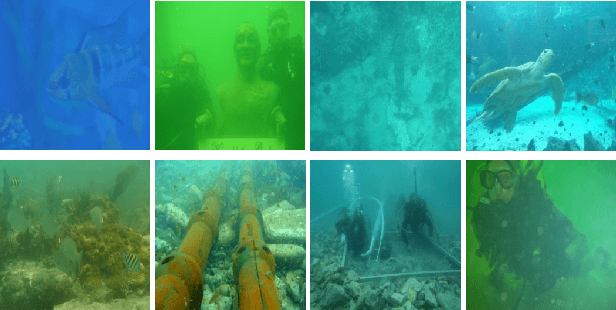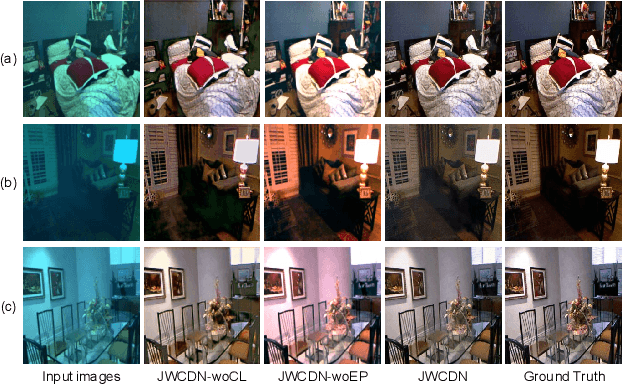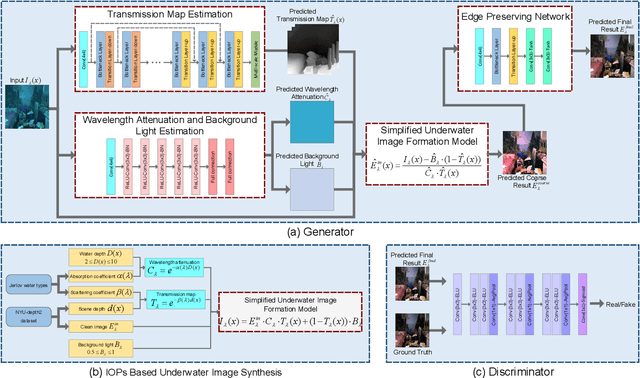Jointly Adversarial Network to Wavelength Compensation and Dehazing of Underwater Images
Paper and Code
Jul 12, 2019



Severe color casts, low contrast and blurriness of underwater images caused by light absorption and scattering result in a difficult task for exploring underwater environments. Different from most of previous underwater image enhancement methods that compute light attenuation along object-camera path through hazy image formation model, we propose a novel jointly wavelength compensation and dehazing network (JWCDN) that takes into account the wavelength attenuation along surface-object path and the scattering along object-camera path simultaneously. By embedding a simplified underwater formation model into generative adversarial network, we can jointly estimates the transmission map, wavelength attenuation and background light via different network modules, and uses the simplified underwater image formation model to recover degraded underwater images. Especially, a multi-scale densely connected encoder-decoder network is proposed to leverage features from multiple layers for estimating the transmission map. To further improve the recovered image, we use an edge preserving network module to enhance the detail of the recovered image. Moreover, to train the proposed network, we propose a novel underwater image synthesis method that generates underwater images with inherent optical properties of different water types. The synthesis method can simulate the color, contrast and blurriness appearance of real-world underwater environments simultaneously. Extensive experiments on synthetic and real-world underwater images demonstrate that the proposed method yields comparable or better results on both subjective and objective assessments, compared with several state-of-the-art methods.
 Add to Chrome
Add to Chrome Add to Firefox
Add to Firefox Add to Edge
Add to Edge